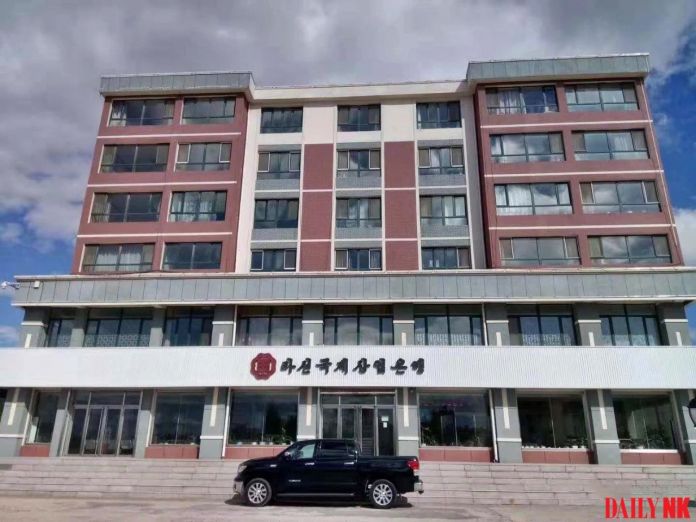North Korea has recently moved to expand subscribers to insurance and installment savings accounts as part of efforts to enlarge the government’s sources of revenue.
Speaking on condition of anonymity for security reasons, a reporting partner in North Korea told Daily NK on May 17 that, starting last month, the authorities have been mandating that employees at certain government agencies and state-run companies sign up for installment savings accounts.
Specifically, educators and officials at party, administrative and legal institutions, trading company staff and workers at finance-related agencies such as provincial, city and county commercial management offices and service agencies need to register for installment savings accounts. Officials with agricultural committees and agricultural guidance agencies must sign up as well, the reporting partner said.
“Savings centers are handling the management of products that individuals sign up for. If you sign up, the savings are automatically deducted from your salary. You can recover the principal five or 10 years later, depending on the maturity period, and they ensure 1.4% to 1.7% interest, depending on the product. However, people are still quite unhappy with the mandatory savings measure because they have little faith in the banks.”
The North Korean government calls the products “savings accounts,” but they are closer to what South Koreans call “installment savings accounts” because subscribers must contribute a fixed amount every month, and they cannot unsubscribe until the account reaches maturity.
The order mandating management-level officials and staff at certain agencies and enterprises to register for the installment savings plans came after the Seventh Enlarged Plenary Meeting of the Eighth Central Committee in late March.
North Korean media reported that the meeting discussed improving state financial work and that Premier Kim Tok Hun made a report on “improving banking and putting the state financial system on a more scientific basis,” but no details were revealed.
However, given how the order mandating subscriptions to installment savings plans came after the meeting, it appears a plan to expand individual subscriptions for installment savings plans was included among several measures to improve state finances.
Expansion of efforts to increase installment savings plan subscribers
Since 2019, North Korea has demanded individuals open accounts at banks or subscribe to deposit guarantee products, ostensibly to normalize the country’s banking system.
Up until recently, the country has usually mandated that teachers and civil servants at state institutions sign up for the installment savings plans. This time, however, they are forcing trade officials at trading companies, agricultural production management staff at agricultural committees, and employees at commercial management offices to sign up as well.
In short, the authorities are trying to expand subscriptions to include not only civil servants, but also staff who make regular incomes at agencies or enterprises that handle cash or products. An expansion of installment savings plan subscribers will likely lead to a growing role for regional banks and savings centers, which have existed in name only.
Meanwhile, North Korean authorities are trying to expand the scope of people who are required to take out insurance. After the Seventh Enlarged Plenary Meeting of the Eighth Central Committee in late March, employees at trading companies and commercial management offices are now required to sign up for insurance programs.
Regional banks appear to be acquiring new sources of funding through the insurance premiums paid out by these subscribers.
Im Song, a researcher at the Office of North Korean Economic Studies in the Bank of Korea’s Korea Development Institute, told Daily NK by telephone that “in the short term, North Korea could hope to see a positive effect as [banks] secure funds through individual or corporate installment savings or insurance, which they then lend to companies.
“The problem is that North Korea’s corporate finance situation is unstable, and money isn’t circulating very smoothly. If companies cannot pay the money they borrowed back in a timely manner, the banks cannot return the principal back to individuals. This could lead to several problems, including a drop in faith in the banks, the contraction of private economic activity, and bankruptcies.”
Translated by David Black. Edited by Robert Lauler.
Daily NK works with a network of reporting partners who live inside North Korea and China. Their identities remain anonymous due to security concerns. More information about Daily NK’s reporting partner network and information gathering activities can be found on our FAQ page here.
Please direct any comments or questions about this article to dailynkenglish@uni-media.net.


















